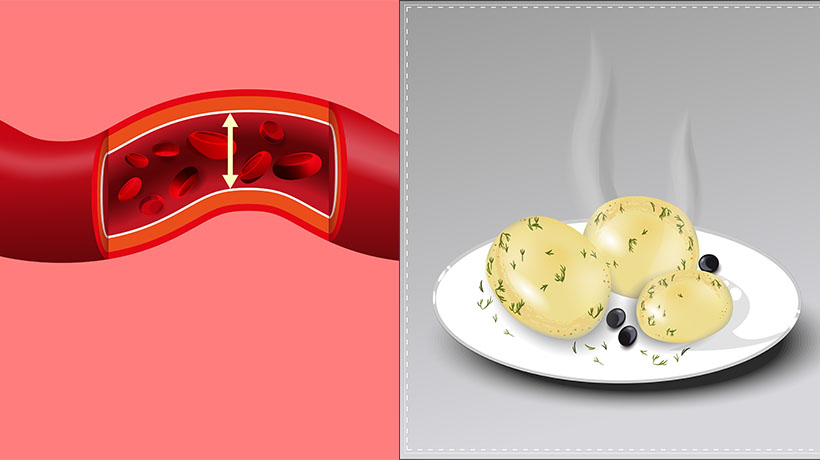When it comes to your health, it’s important to pay attention to all the indicators that could preface the onset of a pernicious disease. Abnormalities in these indicators alone can be the problem, such as with blood pressure. High blood pressure can stem from an existing condition, or the onset may lead to further complications. If you do get a higher than usual reading, which is above 130/80 mmHg, it’s a good idea to consider ways to lower it as soon as possible.
Not only is high blood pressure a contributing or primary cause of death in the United States, but it also puts you at risk for heart attack, stroke, aneurysms, cognitive decline, and kidney failure. While medication can lower your blood pressure, it’s easier to avoid unwanted side effects by treating it naturally.
Deep breathe
According to the Mayo Clinic, chronic stress may contribute to high blood pressure. Our bodies release cortisol and adrenaline into the blood, which can raise your heart rate and constrict blood vessels, causing your blood pressure to spike. If you react to stress by consuming unhealthy food, smoking, or drinking alcohol, these can also contribute to high blood pressure.
One way to solve this is taking time to relax by deep breathing to reduce these stress hormones in your body that may also contribute to unhealthy eating habits. You can choose a certain time to fit this into your day and build up from there, such as five minutes before bed or five minutes after waking up.
Exercise
Another way to naturally lower high blood pressure is by exercising. An analysis of 400 studies published by the British Journal of Sports Medicine showed that regular, rigorous exercise is just as effective at lowering blood pressure as medications. The American Heart Association recommends spreading out your exercise to 30 minutes most days of the week.
Reduce sodium
Reducing your sodium intake in your diet can reduce blood pressure by about 5 to 6 mm Hg if you have high blood pressure according to the Mayo Clinic. You can try eating less processed foods and skipping the additional salt in your diet.
Limit caffeine
It’s also helpful to limit your caffeine intake in your diet to reduce blood pressure. A study published by Taylor and Francis online revealed that on average, consuming 200 to 300 mg caffeine (the amount found in one or two cups of coffee) raises systolic blood pressure by 8 mmHg and diastolic blood pressure by 6 mmHg.
Eat a healthy diet
Adhering to a healthy diet certainly helps regulate blood pressure and overall health. Specifically try to eat plenty of whole grains, fruits, vegetables and low-fat dairy products and avoid saturated fat and cholesterol.
According to Linda Van Horn, PhD, RD, a professor of preventive medicine at Northwestern University Feinberg School of Medicine, adding potassium to your diet by eating potatoes and bananas encourages the kidneys to excrete more sodium through urination, and that sodium excretion can help lower blood pressure. She recommends 2,000 to 4,000 mg of potassium a day.
Lose weight
The Mayo Clinic maintains that blood pressure often increases as weight increases. Losing just a small amount of weight if you’re overweight can help reduce your blood pressure. You may reduce your blood pressure by about one millimeter of mercury (mm Hg) with each kilogram (about 2.2 pounds) of weight you lose.
Carrying too much weight around your waist can also put you at greater risk of high blood pressure, especially men with waists of 40 inches or more, and women with waist measurements of 35 inches or more.
Sources:
https://www.prevention.com/health/health-conditions/a20428370/how-to-lower-blood-pressure-naturally/
https://www.mayoclinic.org/diseases-conditions/high-blood-pressure/in-depth/high-blood-pressure/art-20046974
https://www.heart.org/en/health-topics/high-blood-pressure/changes-you-can-make-to-manage-high-blood-pressure/getting-active-to-control-high-blood-pressure



